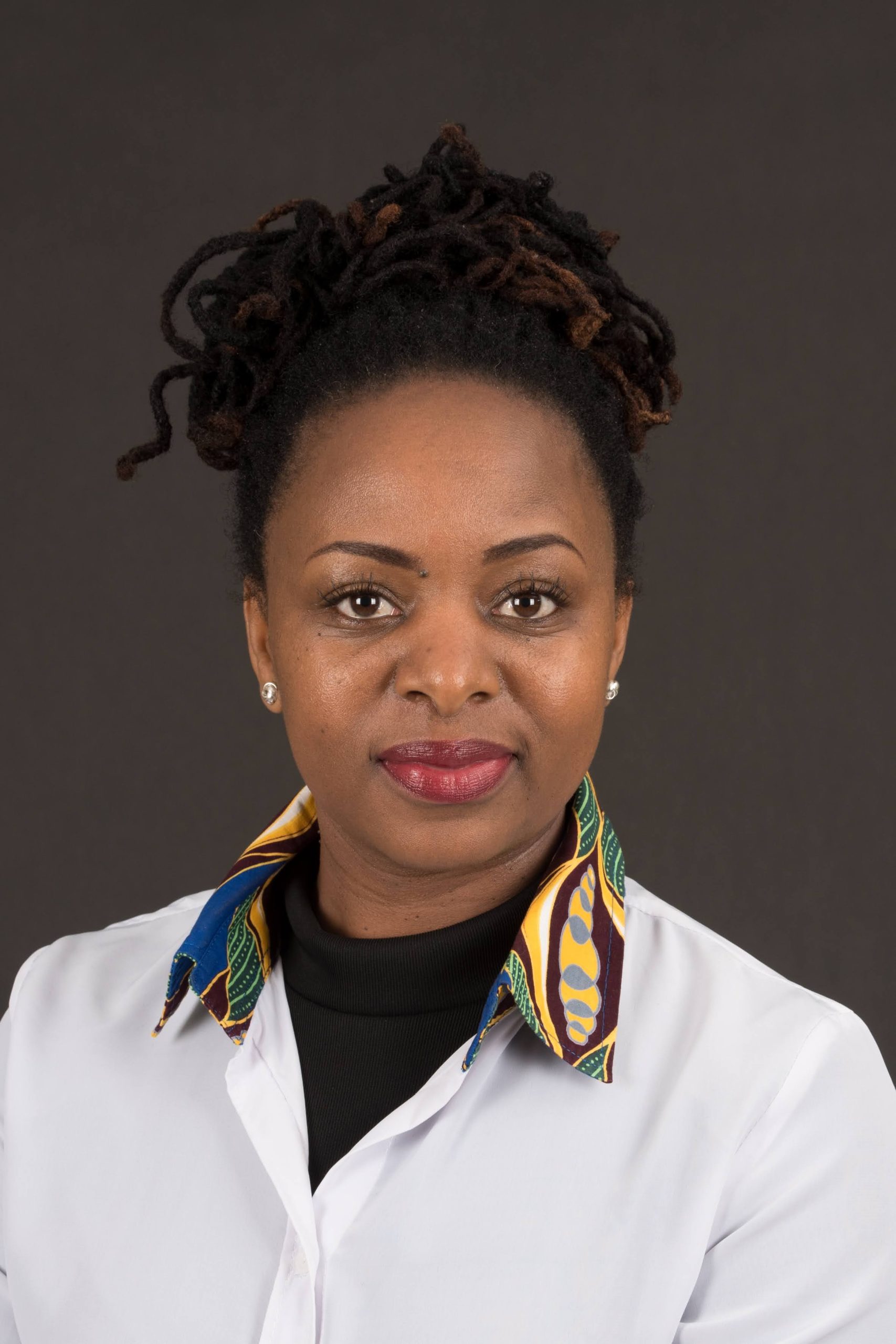
Eglet Mtengwa Nyabvure, is the Founder and Managing Director of Pfeka, Netherlands. With a passion for creativity and a commitment to expressing individual identity, Eglet has transformed Pfeka from a mere hobby into a profound venture that merges African accents with Western materials. The brand, born out of Eglet’s desire to highlight culture, uniqueness, and personalization has gained recognition for its innovative pieces at the intersection of fashion and engineering. Hailing from Zimbabwe and drawing inspiration from both African roots and exposure to Western culture, Eglet brings a distinctive perspective to Pfeka, elevating it into a brand that resonates globally. Through her extensive background in sales, design engineering from her professional studies, and telecoms consultancy services, Eglet infuses Pfeka with a unique blend of technical expertise, creativity, and a deep understanding of cultural fusion. Her journey reflects a commitment to bridging the gap between virtual and physical garments, establishing Pfeka as a symbol of individuality and cultural expression on the world stage.
She speaks exclusively to Sunday Oyinloye, Publisher Green Savannah Diplomatic Cable.
Excerpts:
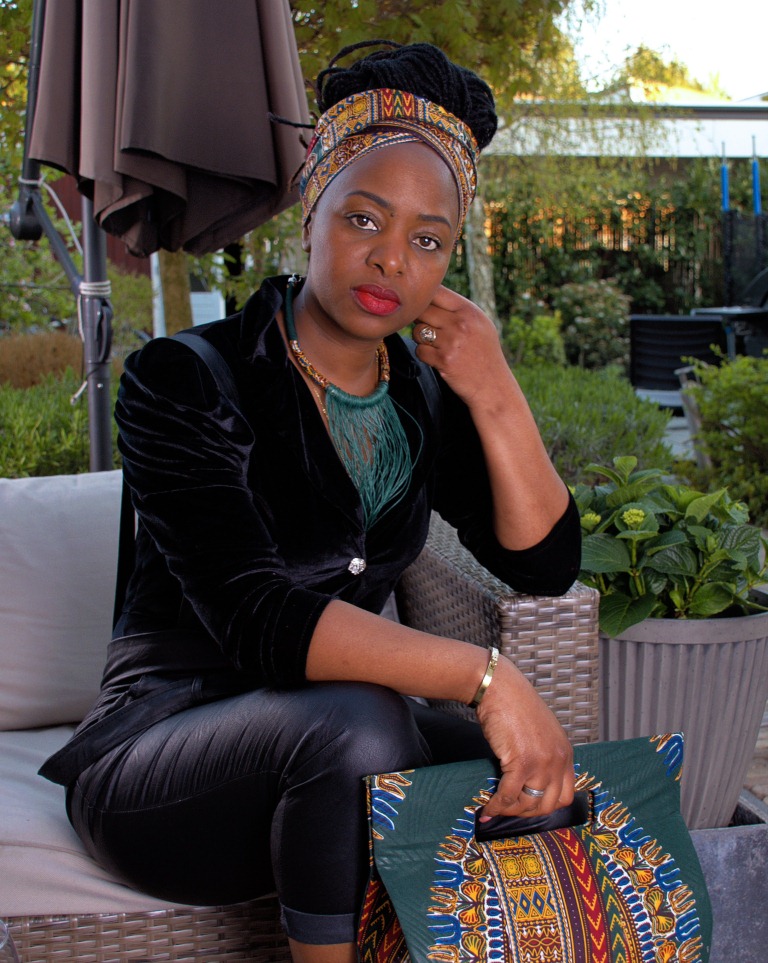
What is the story behind the establishment of Pfeka?
The story behind FEEKA is the story of identity, the story of preserving one’s identity, and to value the history and stories from where one is from. Pfeka is a Shona word for wear. For me and for us, it was to wear the African story; wear the African richness, so whatever design and collection we make, it has stories. We always have to bring the story out. Any story inspired by Africa, it could be the animal prints, it could be the heritage, it could be history or nature. All these kind of things are what you will find in our designs and I am a telecommunications engineer by profession and wherever I go identity is something that I had always fought for. As a female engineer, you’d always find out that you are ridden by a lot of men but I always wanted to bring my identity out and show who I am and be authentic so when we moved to Europe, I really wanted to show where I am from. I am African, I am Zimbabwean and this could be shown in my designs, so it was established in 2018. I registered the company and it became official. That was how Pfeka started.
Did you face any challenge when you started the business and how were you able to overcome those challenges?
For any new entrepreneur or for anyone starting a new business, it might be challenging for people to accept your idea. So, a new brand always comes with skepticism. People are skeptical of what you want to be. You are challenging bigger brands like Nike, Adidas and also challenging the status quo of African prints in sports. So that actually was quite a big thing–having the market accept what we have or the story we are bringing out, but it’s all about trusting yourself first of all. We overcame the challenge of acceptance by marketing and making sure we have physical shops so that people could come, touch, feel and look at our prints. As an entrepreneur in fashion, we tend to always have the challenges of cash flow because we have to design, make samples or even make stock, and if the sales are taking long to go out, you have your cash locked in your stock. And when you need the cash to bring the next stock or for new designs, it becomes a challenge. Cash flow is always something that is ongoing because the more you grow, the more your stock also grows. We have three clothing types which are sports kits, active wear and casuals. We used to do quite a lot of items but when we focused on a specific type of clothing, it reduced the amount of money that we spend. We don’t need to make a lot of samples or trial and error. We know exactly what we are making. Our collections are tested, tried and are of good quality. We also reduced the number of suppliers we work with. That means we can end up having payment terms which helps the business. Our biggest challenge now is logistics. We have a shop in Zimbabwe and most of the online shopping done in Netherlands and shipping is a bit high. What we do now is send items in bulk. We don’t have to send single items. When we send in bulk, the price reduces which is quite helpful.
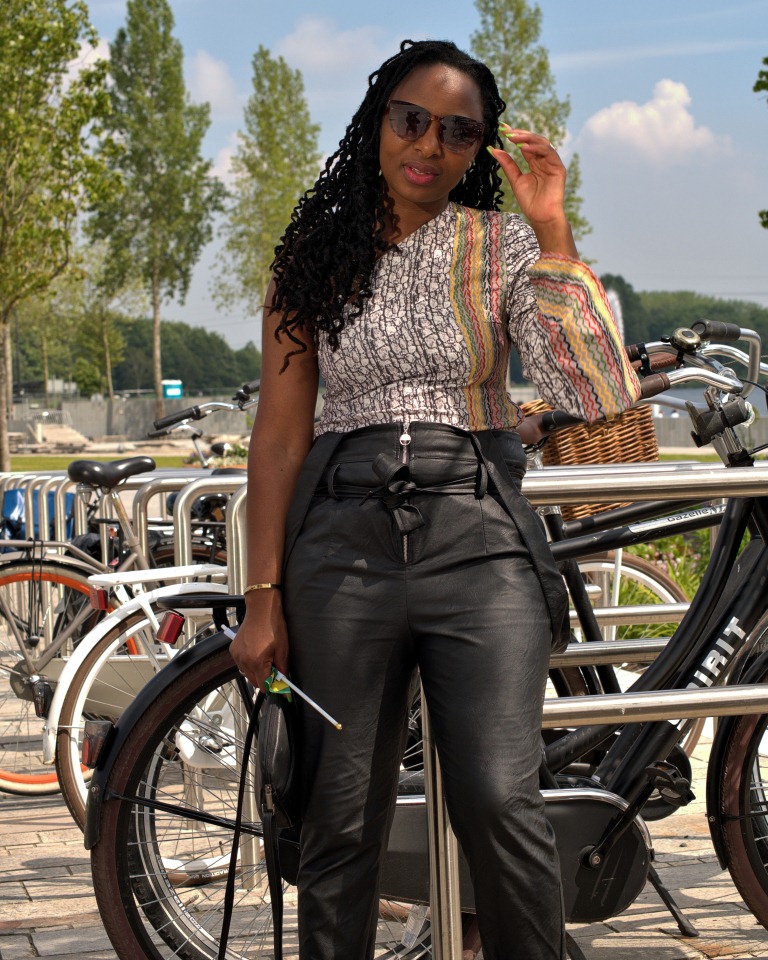
Why sports kits, active wears and casuals?
When I started the brand, all I wanted was something that speaks to me as the product owner. It had to evolve around myself so I could sell it better. This is something that I would encourage for any brand. You need to believe in your brand. It should be something you live by. For the sport kits, I will say I’m conscious about my health and looking good so I love to workout. However, I didn’t see many African prints represented in that area and it’s something that I do so it was easy for me to think around how I can bring the African story in active wear and how to make it unique. It was easy to look into that space because it wasn’t popular to find active wear with some African prints in it and it also made us design and create our own fabric that stretches and can be used for ethic wear. Also because I was looking at African stories, most people who wear African prints in Zimbabwe were women and what I wanted was to make sure that everyone can try to embrace this African prints and clothes. One space that people find themselves is sports and it was a space where we could have many people embrace the African print and African story. When I started working with teams and clubs, we wanted a space where we could bring the Zimbabwean story out in sports kits. They would go for international tours and meet other countries. It was a perfect way of showing the identity of Zimbabwe. For example, in most of our kits, we have the motifs of stones which was inspired from the great Zimbabwe monument which is a strong history of how our ancestors built houses without technology.. To show that Zimbabweans are ingenious and talented. We tell the story in the fabric and in the sports wears and for casuals, we moved more to casuals after the pandemic. I chose the three (sports kits, active wears and casuals) because they are quite unique. Many are making an African print, which is beautiful in their own rights, but having African Prints in active wears and sports is our niche. Pfeka utilize the current technology to bring the prints into active wear fabrics which is unique. When you look at most of the African prints, what people wear mostly is cotton that is not stretched or light to be used for sports. This pushed us to create our own fabrics and accessories.
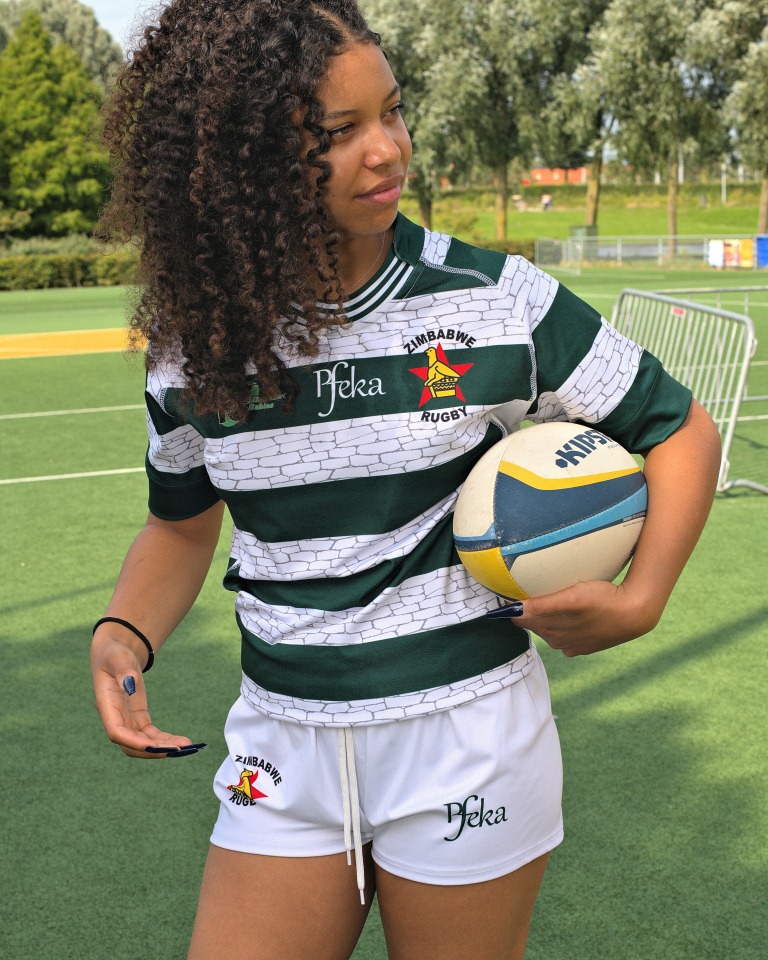
What is unique about your products?
Each and every fabric that we use has the story of Africa. We found the inspiration from African prints. It could be animal print, it could be the desert, it could be nature, it could be water falls, and it could be heritage. Each item and fabric carries a story. We look at this as a way of preserving our heritage, history and to tell the beautiful story of Africa. Our products are also modern and can be used by anyone. Each of our products goes through a process and there is a story behind it. Again, most of our products are unisex which makes it very sustainable. Our products are valuable and our story authentic. Also, our fabrics are not limited to only cotton or one type of material, they are diverse.
What influence does your background as a Zimbabwean have on your designs?
If you check our products, you see more of Zimbabwe. I mentioned the issue of identity. When I went to the market to look for African print fabrics, most of them were speaking other countries and not Zimbabwe, so I took it to task to create the story of Zimbabwe. I wanted something that looks African but speaks Zimbabwe. Most of the prints I make are either inspired by the heritage and the monuments in Zimbabwe. Zimbabwe means house of stones, so our prints carry the stones and other things authentic to Zimbabwe. I am also inspired by flame Lily which is the national flower of Zimbabwe. Some of my designs have flame Lily. Again, some of my designs reflect the big five (elephant, lion, leopard, buffalo, and rhino) that we have in Zimbabwe. It’s something I grew up with and I tell that through the fabrics that we use. When I started, I was using popular African fabrics like the kente of Ghana, but for me to come up with Pfeka, it has to be something that speaks Zimbabwe. So when you look at our products, you realize that it will take you to Zimbabwe. I also still can incorporate fabrics from other countries but mostly it will be stories out of Zimbabwe.
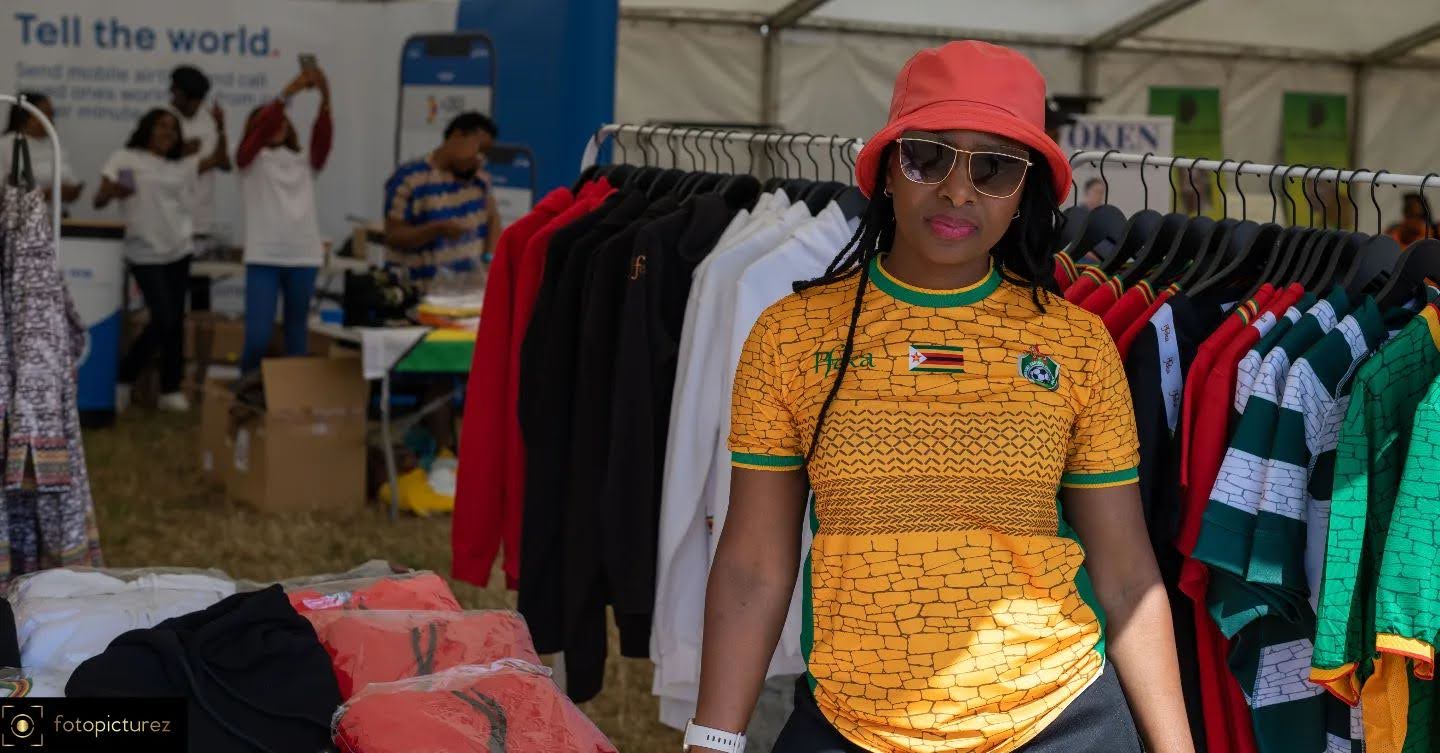
Who are your major clients and would you say that your products have fared well at the global sportswear market?
I will say we are still growing; our biggest clients are sports teams and clubs. We have Zimbabwean connections, and on the global scene we have seen our products on such big stages like Davies Cup, Netball World Cup and others. We are in contact with international clubs, we have received some inquiries from some international clubs and teams, and we see ourselves this year being able to compete on that high level space where they were using bigger brands like Puma and others. We are getting there. In Europe; some of our clients are here in the Netherlands, and other countries. Because of globalisation, we have many Zimbabweans in other countries that carry our brand. Through this, we have been getting orders from non-Zimbabweans, particularly Africans and others who love African brands. Recently we had a hockey team and others in Chile wear our brand at the world Cup. So ours is a global brand. It is not limited to Zimbabwe. For us, what is important is storytelling. Every team that comes to us, we sit down and discuss the uniqueness of what we are going to give them. I must say that we are excited about what the future is going to bring.
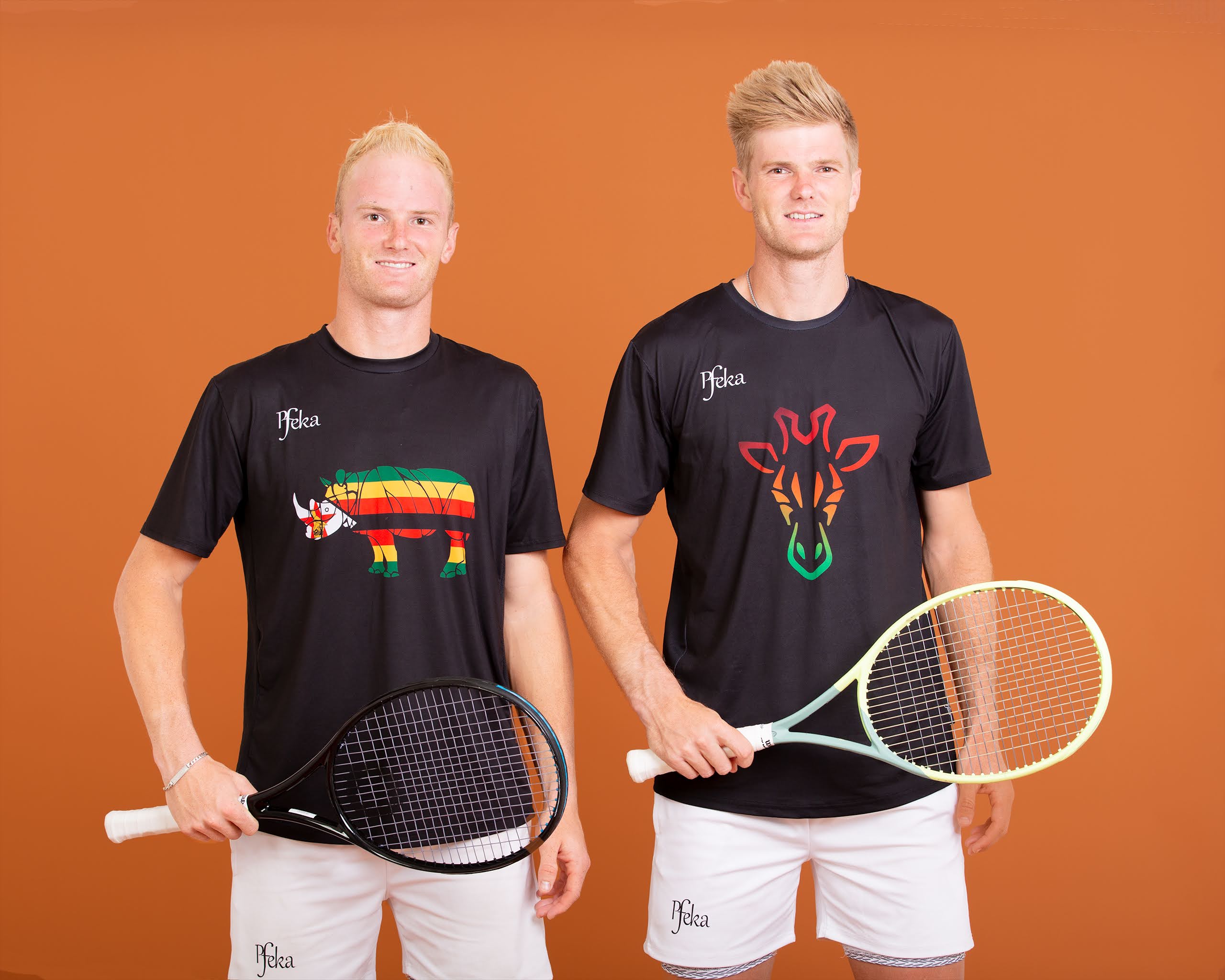
I want to know your big dream?
We are entering a phase which is quite unique and big; we are getting into the time where people are quite particular about health and sustainability. My big dream is to be that African brand, telling the African stories, a brand that will represent Africa at a bigger scale. The dream is to also have many other designs and collections for different countries with each country’s history on our designs .We want to make sure that we are assessable and available in major locations across the globe where African brands can be picked. As an Engineer, I want bring technology to what we are going to produce, it could be technology on improving health or monitoring health; sustainable way of creating garments.
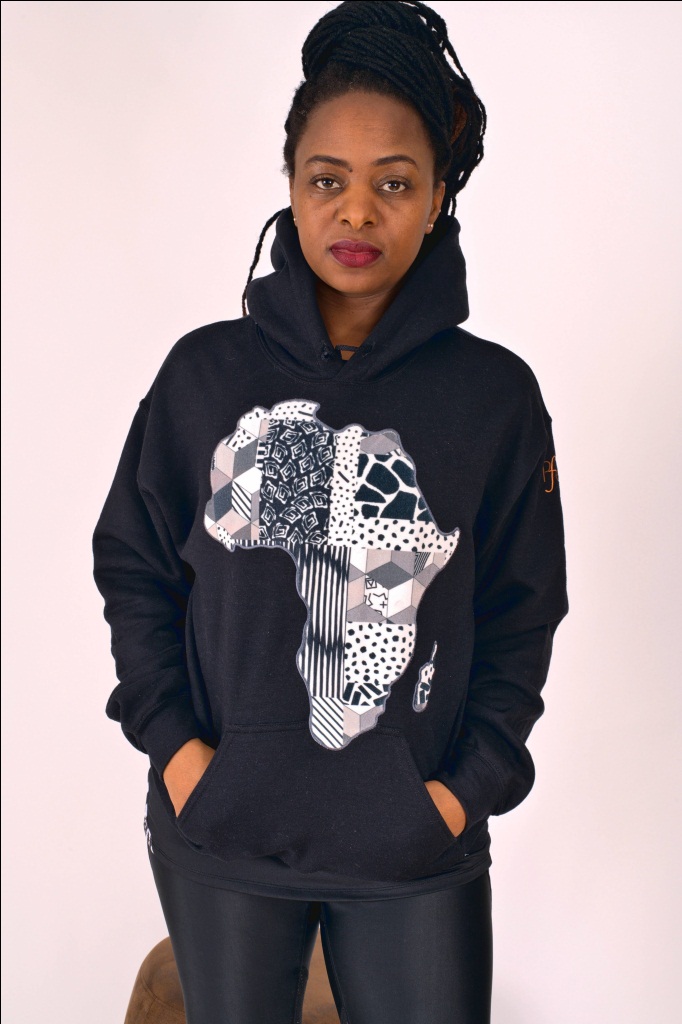
At what point would you say you had breakthrough in business and how were you able to make an impact in a foreign land?
For me, breakthrough is that moment I see Pfeka being worn by someone I don’t know or when receive orders from people I don’t know. The moment someone who is not your relative picks up your product relates to it, like and buy it, that to me is a major breakthrough. From that point forward, we realised we were doing something amazing, because we have products that people were buying not because they know us but because they love them. As for making an impact in a foreign land, it was not easy. First you have to learn the language, secondly I am an Engineer, I didn’t study fashion therefore, I had to know who is who in the industry so that I could connect to the right people, it wasn’t easy. Of course I utilised the connections I had in my profession and I market quite a lot. Being a new brand, people were skeptical, they doubted. As I said earlier, I learned the language, so that I could understand the laws and to know the regulations and make sure we meet international standards. AS you know, we are in a digital era, we made sure that our digital presence is on point. We told our stories on social media and we didn’t relent until people began to know about us and our brand. That helped in our success story.
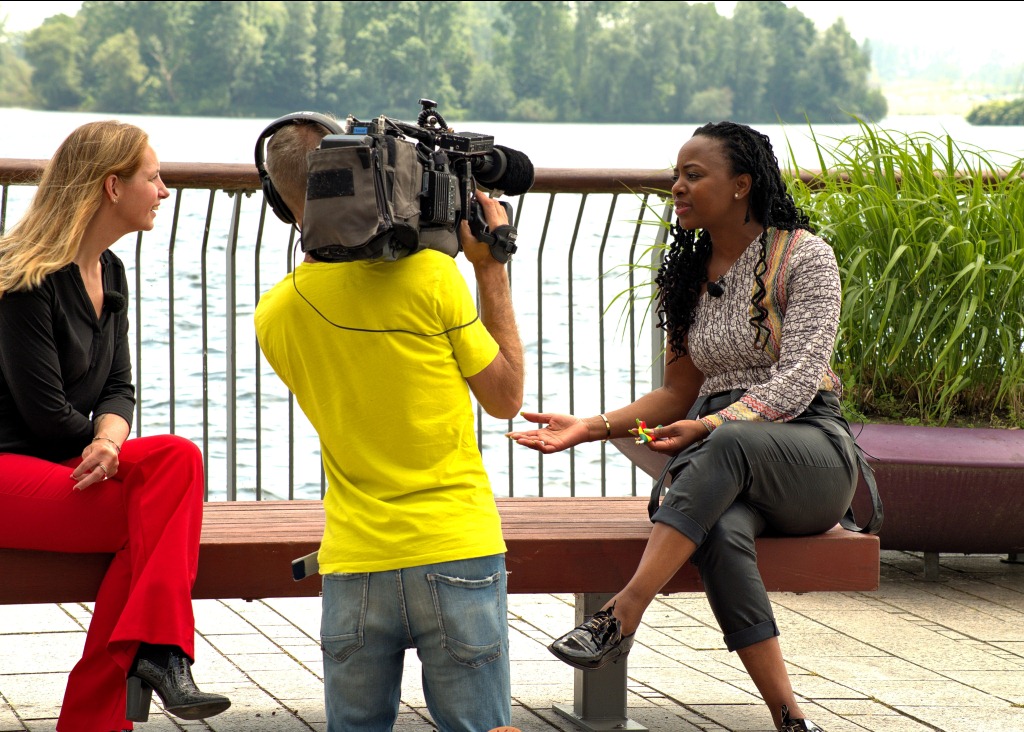
Are you in any way giving back to Zimbabwe?
Besides telling Zimbabwean story, I always call myself a Zimbabwean Ambassador. Most of our work is to support the local Zimbabweans. When we work with local teams and national teams we do not charge them the full price, we just take the cost of production. That’s how we support our teams to look nice. They use our designs. I also support some women in business. Our brand is now big and growing. Sometimes I get orders to make dresses that we don’t even have in our catalogue, I work with a group of local designers and tailors, so I help find jobs, and for some, I help in identifying their clients outside of Zimbabwe. I work with the local Zimtrade Company which also helps in import and export. In addition, I help with brand building. Besides, I sponsor some small teams and also help with their kits. In the future, the goal is to have production line locally; bring in machine and utilise the workforce in Zimbabwe, so that they can gain from the knowledge and expertise we have.
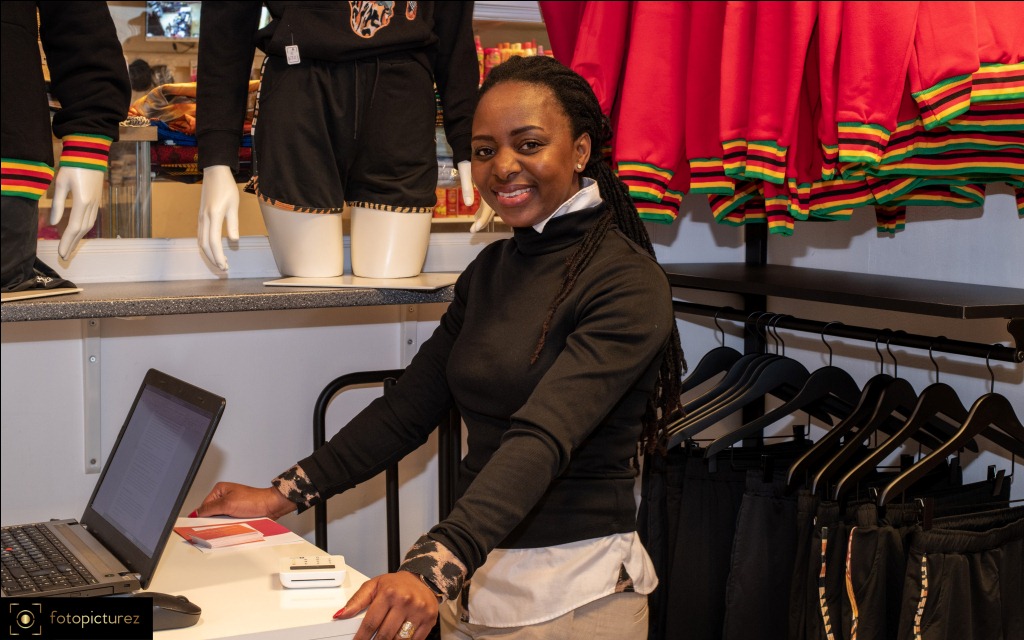
Tell me that thing the world does not know about Eglet?
When most people talk to me, they assume that I grew up in the city because of my confidence. No. I didn’t. I grew up in the village and had to build up on my confidence to say that I can do it. Back home there is a big difference between someone who lives in the city and village. When you live in the village, you are not very much exposed to a lot of things; it is just like you are lower class. I went to the city just for my college. Then I was older, so most of my childhood was spent in the village. I was also shy at some point. I didn’t have much conference, but my parents were very supportive, always encouraging me. I didn’t grow up with so much confidence but when I moved to study Engineering, I realised I had to step up a bit. And with time, I also realised that I could create my own table instead of someone putting down a table for me. The point I am making is that your class does not define you, no matter your background, nothing is impossible if you are determined.
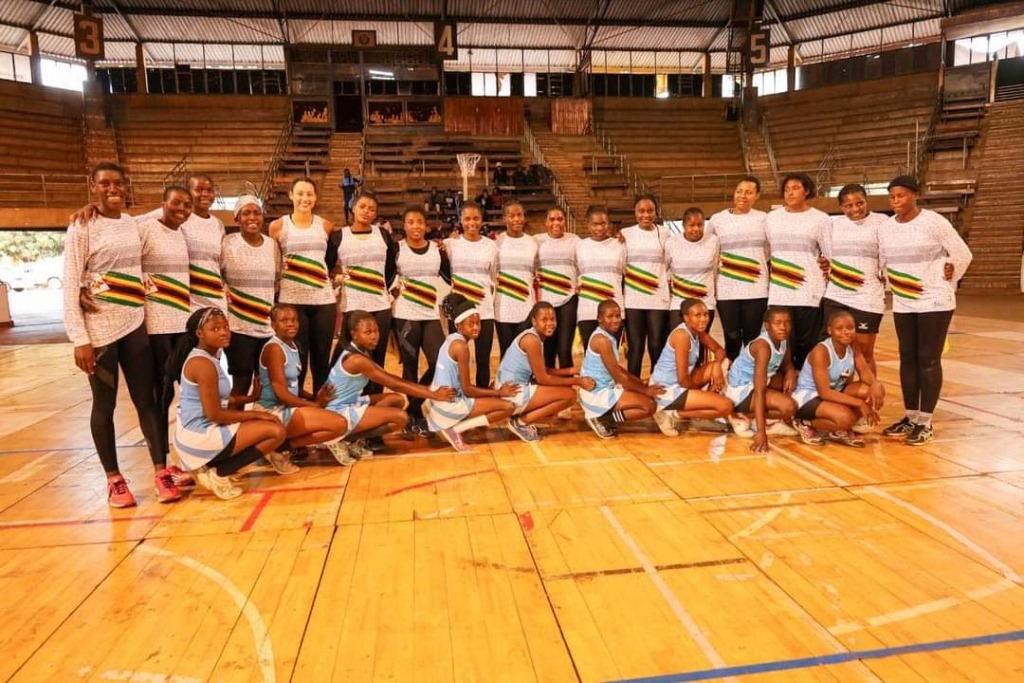
What advice do you have for young African Entrepreneurs?
If you think you are not good enough or you don’t have what it takes to be somewhere, my advice is that if you have an idea and true to yourself and follow what your heart says, you will make it. Do not shy away from your story. My story is that young village girl who had no confidence, but defied all odds to study Engineering, worked with big companies, and got her own brand without studying Fashion. If you believe so much that you can be different, you can actually make it work for yourself and brand. Never shy away from experience. Whatever experience you get even from a low paid job or with your bosses, those things will build you. Always embrace your journey because it defines you and makes you authentic, it makes your story unique. Only you can tell your story









